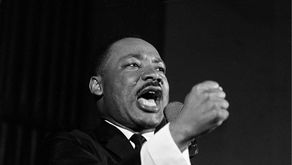Thoughts on the Coronavirus
- Mar 12, 2020
- 3 min read
From time to time I will add a ‘mini-post’ to my blog, quick thoughts on something that pops up in our social landscape that I want to briefly address.
The Coronavirus pandemic has been dominating the news in recent days, with President Trump delivering an Oval Office address blaming Europe (except for the UK for some unexplained reason) for the spread of the virus. At different times the government has also blamed China and the Democrats, while paradoxically minimizing the importance of the outbreak and the difficulties in containing it.
Discussing it with an older Sociology colleague, we agreed that neither of us have seen anything like this in our lifetime- professional sports teams and the NCAA cancelling major events, schools closing, cruises and flights being suspended, etc. As I write this, my college still plans to have classes meet as usual, as do the local public schools, so my 6-year-old son and I will go to our respective houses of higher learning on Monday, as usual.
There are multiple ways to analyze what is occurring in the U.S. (and globally) regarding this virus, and I would like to elucidate a Sociological view here, since my field typically employs a structural and institutional, rather than individualized approach.
I’ll start by sharing an “anti-Sociological” quote from Rudy Gobert, the NBA Utah Jazz player who first tested positive for the Coronavirus which contributed to the NBA suspending the rest of the season. Gobert admitted to being cavalier about the virus, which certainly does not make him an anomaly, and stated “the first and most important thing is, I would like to publicly apologize to the people I may have endangered. At the time, I had no idea I was even infected.”
Undoubtedly Gobert, an all-star who is respected in the league, is sincere in his apology, but it is difficult to understand why someone would apologize for something they did not know about. Additionally, and much more importantly, it sets himself up, and anyone else with the virus, as a perpetrator. This then feeds the common narrative, influenced by the country of origin of the virus, that individual people are the problem and their personal behavior necessarily is therefore both the obstacle and the solution.
Rather, the spread of any disease is a function of political and economic forces which determine how the illness will be viewed and treated, based in part on who is suffering from it. As such, the solution is necessarily political, not based strictly on individual behaviors.
The U.S. has millions of people without health insurance, and millions more under-insured, meaning they cannot afford to go to the doctor, even with insurance. Many of these folks work in fields that affect the health of everyone else- the food/beverage industry, child-care centers, housekeeping, etc. When exposed to the Coronavirus, as they surely will be, they are the least likely to be able to afford medical care. This is no accident- the corporate sector has historically and consistently opposed government mandates on sick leave (the owners of Olive Garden and Longhorn, for example, have for years fought expansion of medical care for their workers, only recently back-peddling in the face of intensified public scrutiny).
Undoubtedly, we would benefit from health care being available to our entire citizenry, regardless of income, yet the government response to the virus has avoided this conclusion. Instead of blaming other countries, or the Democratic party, or individual people who are not even aware they carry the virus, we should focus national efforts on taking care of those who are precluded from access to healthy living. This entails putting aside partisan discussions, recognizing that all of us benefit when the most vulnerable benefit.







Watching the news today, I had similar thoughts about the villification of Gobert's "carelessness" when most of of us are equally careless. His apology sets him (and others) as villains, (or perpetrators, as you said) when he is as much a victim as the next person. Granted he probably has insurance and resources that those food industry employees don't have. Lots of good stuff here, great post!